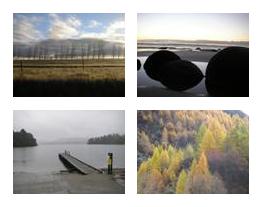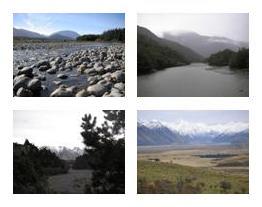The Tip of Google's Iceberg?
A Belgian court has ordered Google to stop publishing news content. Being that I work for the largest online news publisher in New Zealand, the topic of news aggregators frequently comes up at Friday drinks.
Google is our largest referrer so most of the people I work with have no problems with it. They see this notion of copyright and the grumplings from The World Association of Newspapers as nothing short of luddite. After all, people click on the content they are interested in and are transported right to the story page of the particular publisher.
However I still think Google has a case to answer. Few people seem to be looking at the long term ramifications. Yes, publishers get a great deal of traffic from Google and Google News but I think this has the potential to erode the value of a publisher's masthead.
Seen from a marketing standpoint, users will ultimately come to associate Google News with the source of the 'best' most 'up to date' and 'relevant' news content for them. This is exactly the brand position online news publishers are scrambling to grab hold of. Google links straight to the story page -ignoring the publisher's home page. This is the crux of the Belgian case against them. Essentially Google is offering up copyrighted content under its own 'masthead'. Users will go to Google to get New Zealand Herald news rather than the New Zealand Herald itself.
While I may not agree with the position taken by the Belgian publishers, I am endlessly fascinated by the implications. I would bet money that there will be several large class actions taken against the search company in the next couple of years -especially once online publishers can prove they are losing money while Google makes it.
Google should perhaps be quite concerned by this. Newspaper companies will still have a paper to put out tomorrow. Where will Google be if it has to pay to aggregate content?
Google is our largest referrer so most of the people I work with have no problems with it. They see this notion of copyright and the grumplings from The World Association of Newspapers as nothing short of luddite. After all, people click on the content they are interested in and are transported right to the story page of the particular publisher.
However I still think Google has a case to answer. Few people seem to be looking at the long term ramifications. Yes, publishers get a great deal of traffic from Google and Google News but I think this has the potential to erode the value of a publisher's masthead.
Seen from a marketing standpoint, users will ultimately come to associate Google News with the source of the 'best' most 'up to date' and 'relevant' news content for them. This is exactly the brand position online news publishers are scrambling to grab hold of. Google links straight to the story page -ignoring the publisher's home page. This is the crux of the Belgian case against them. Essentially Google is offering up copyrighted content under its own 'masthead'. Users will go to Google to get New Zealand Herald news rather than the New Zealand Herald itself.
While I may not agree with the position taken by the Belgian publishers, I am endlessly fascinated by the implications. I would bet money that there will be several large class actions taken against the search company in the next couple of years -especially once online publishers can prove they are losing money while Google makes it.
Google should perhaps be quite concerned by this. Newspaper companies will still have a paper to put out tomorrow. Where will Google be if it has to pay to aggregate content?




0 Comments:
Post a Comment
<< Home